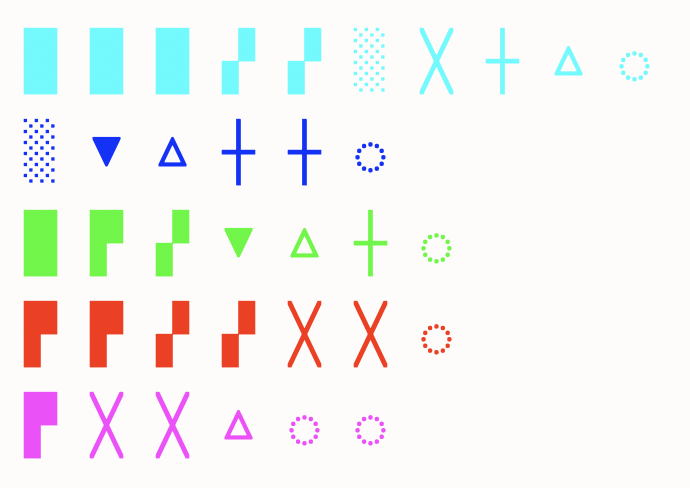Floors chores
4/31 daily posts as part of WeblogPoMo2024. Expect (and forgive) more words and less editing.
On Saturday morning, I dust and vacuum the house.
Without fail. Every week. For years now.
We call it the 'floors chores' and it's just one of my jobs. I've come to love it: we eat breakfast,1 I clean the kitchen, then I put on my noise cancelling AirPods and vacuum while listening to ATP.
Routines are powerful but they're hard to establish. We treasure the floors chores because it means our house is always clean. By now it's effortless.
It would be ideal if we could reach this state with our work. In his latest book Slow Productivity,2 Cal Newport advocates for the formation of rituals:
"...form your own personalized rituals around the work you find most important."
– Slow Productivity, p. 163.
So why are they so hard to establish?
Picture your work day
And by 'work' I just mean whatever it is that you want to get done.
If we assign shapes and colours to tasks, where shapes are analagous to categories and colours to areas (in Johnny.Decimal parlance), our days mostly look like this.

Chaos! None the wonder you can't concentrate. Every switch is a switch in mental state; in the knowledge that you're holding in working memory; in the files and apps you need open to perform the task.
This is not the best way to work.
Let's reimagine. Here's the same shapes, rearranged. And let's introduce some line breaks; perhaps they're actual breaks in your day?

Work in categories
I think we usually behave like the first diagram because we haven't sufficiently categorised our work to enable us to behave like the second.
And this calls back to yesterday's post and my desire to eliminate 'due dates'.
Imagine establishing a routine such that you know, as sure as I know that I'll do the floors chores next Saturday morning, that on the first Sunday morning of the month you tackle all of those heavy blue boxes.
And say they represent all of your home finances: paying your bills, checking account balances, updating your subscriptions, transferring your health insurance, finding a better savings account.
If you knew that you did that every month, you'd never need to be reminded to do it.
And you'd never get that slighly panicked feeling: oh crap, did I forget to pay the credit card this month?
How nice might that be?